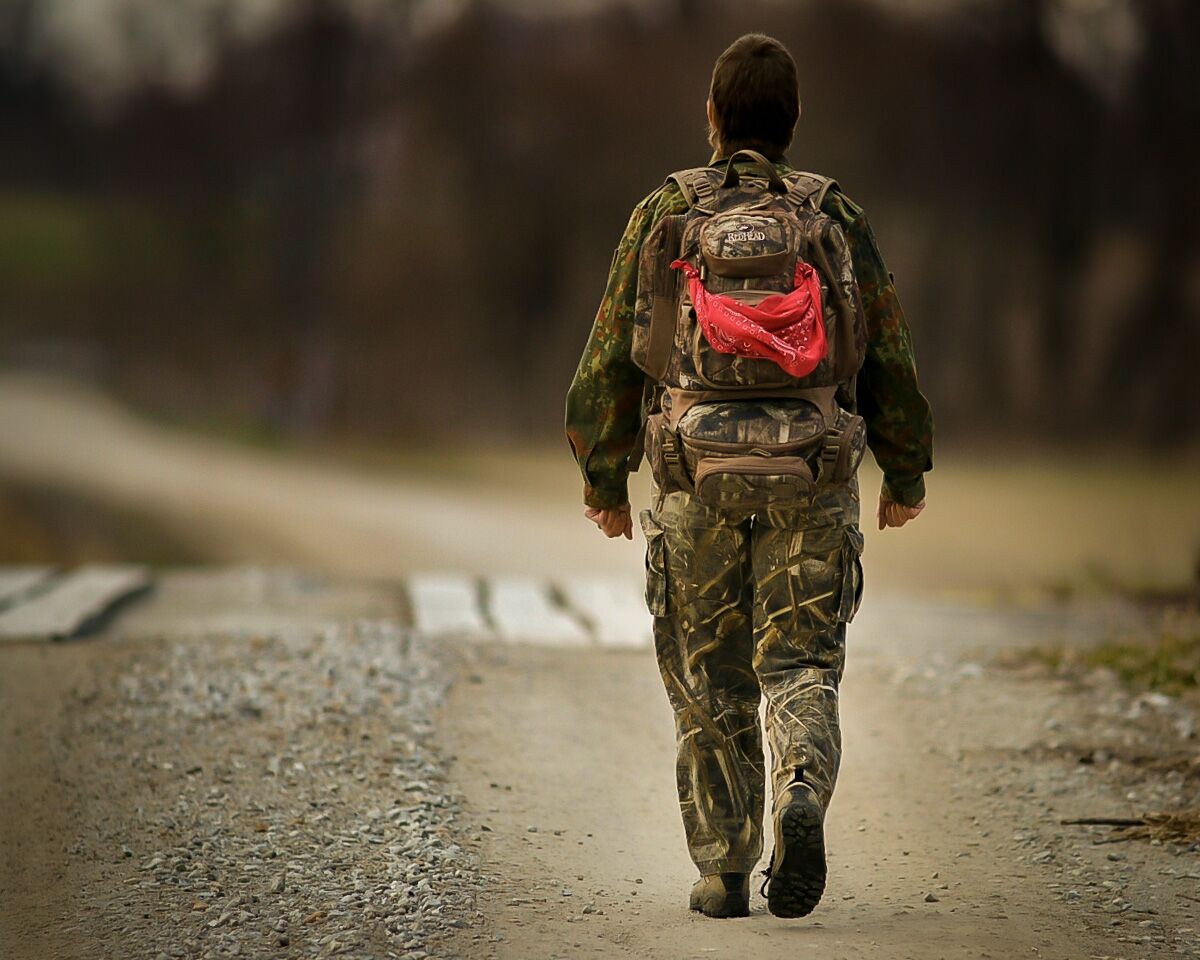
My husband Salty and I were riding our bikes along a trail one fine day when we came across a worried huddle at the side of the trail. At the center of the huddle was a middle-aged man, sitting hunched and breathing in short gasps. He was sweating far more profusely than the day called for and was red in the face. The bike he’d rented lay discarded in the weeds (or to be more precise, the poison ivy) beside the trail. Someone was already on the phone to 911.
He figured it would be no big thing. He used to ride a bike (now and then) when he was just a few years younger. Sure, he hadn’t gotten much exercise lately, but it was just riding a bike a few miles along a trail.
Let’s rewrite the story just a bit. Once upon a time there was a prepper. He had a very carefully chosen and packed Get Home Bag, because if Something Bad happened and he couldn’t drive home, his plan was to grab this bag and hoof it to his home just seventeen miles away. Sure, he hadn’t gotten much exercise lately, but it was just walking some miles. He could do it if he had to.
But when this prepper gets to breathing in short gasps, covered in sweat, nauseous, and red in the face … there isn’t any calling 911, and help is not just a phone call away. Our prepper is in a very bad spot.
Be real in your planning:

It does you no good to make plans for the shape you’d *like* to be in, or for doing things you’ll *need* to be able to do in an emergency unless your body can cash that check. Needs are not mechanisms. Needing to do a thing does not make us physically able to do the thing. Ask anybody who’s ever needed to be able to breathe under water if you don’t believe me. O wait, you can’t.
This is why you need an honest evaluation of your health.
The only plans worth breath to describe are the ones you can actually carry out. Stop a moment and think very honestly and realistically about what you can physically do, Today. Compare that to your plans for dealing with emergencies. If you plan to bug out of your city by foot carrying your Bug Out Bag, how far have you hiked carrying that thing this year? Did that hike include the hills that will be in your way, the obstacles you will be likely to have to scramble over?
Sure, you might be able to gut it out; but you might also get stuck with an injury (much more common when you’re pushing boundaries) or a simple inability to follow through and be worse off than when you started.
When plans aren’t realistic:
If anything in your plans is not something your body can handle right now, you’ve got three choices:
- Forget this conversation and move on. <– Not a great choice. That’s day-dreaming, not prepping.
- Change your plans. For example, Salty (my man) has knees that are not interested in hiking with a pack. Therefore, our plans for getting to The Place (our rural retreat) involve our touring bicycles and saddlebags. We *know* we can bike that far in a day because we do so several times a summer. A less-than-optimal plan you can actually carry out is worth infinitely more than a plan that’s perfect except for that tiny glitch of ‘you can’t do it reliably’.
- Change yourself. There are several great reasons to get in better shape. Not needing medical care you won’t be able to get in an emergency is right up there; and so is being able to plan to do things like cut wood for heat and carry water up the hill to the house without having a heart attack.
What about medical needs?
The majority of adults in the U.S. are now on prescription medications; most of those people are on more than one. The best answer is to improve your underlying health not to need the meds. If that’s not possible or you’re not willing to change your lifestyle that much, Plan B would be is to stock up if you can. If that’s not feasible, Plan C is to have researched alternatives and be stocked up on them.
If you struggle with depression, have some St John’s Wort planted where you can get to it, for example. It has nice flowers anyway. If you have diabetes, make sure your food stores are choices that don’t tend to raise blood sugar much (very unlike many standard ‘prepper’ foods). If you have hypertension, keep the salt in your prep foods low, etc.
The main point: The plan’s only good if it is actually likely to work, and asking too much of your body in a high stress situation is a recipe for disaster. This is no place for ego; be honest to yourself about your capabilities and keep your plans within them.
About the author: Spice is one of the founders/owners of the website Beans, Bullets, Bandages and You, and one of the blog’s main contributors. She’s not a doctor, but has worked in the field physiology and medicine and has been published in numerous peer-reviewed medical journals. You can read more of her work at https://beansbulletsbandagesandyou.com. The photo shows the author on one of her training hikes.
